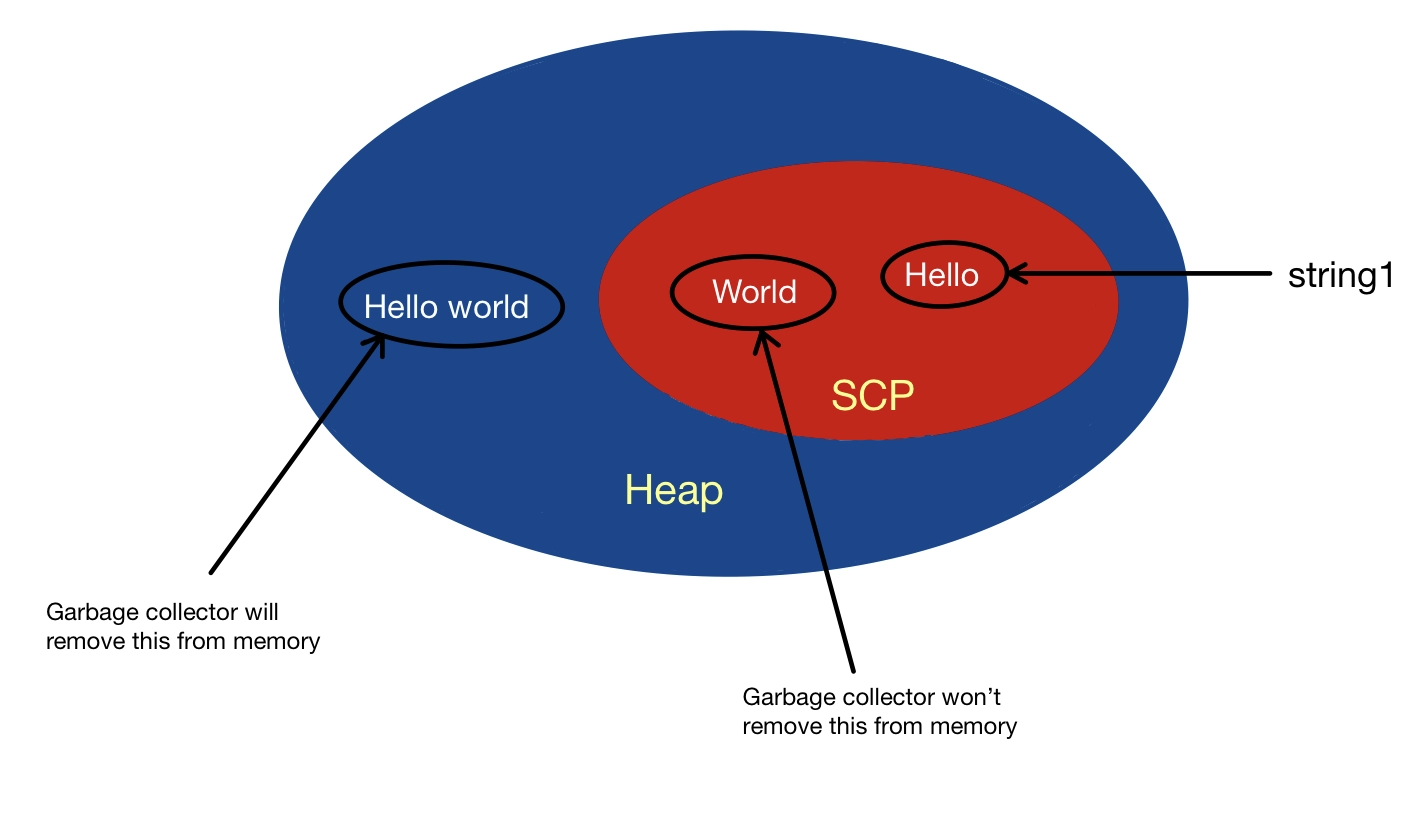Why Are Strings Immutable in Java? Insights into Memory Efficiency
Why Are Strings Immutable in Java? Insights into Memory Efficiency
Blog Article
What Is Unalterable Strings and Just How It Functions
In the world of programming, comprehending the principle of unalterable strings is critical for producing robust and secure applications. Immutable strings refer to strings that can not be modified after they are created, ensuring data honesty and predictability within the code. This essential principle plays a critical duty in numerous programs languages and provides a distinct method to taking care of information. By checking out the intricacies of just how immutable strings function, one can discover a globe of benefits and possibilities that can elevate the high quality and efficiency of software development.
The Basics of Immutable Strings
Immutable strings, as a fundamental idea in programs, are personality series that can not be transformed once they are produced. This indicates that as soon as a string is appointed a worth, that worth can not be modified. In languages like Python and Java, strings are immutable items, causing various implications in terms of memory administration and information honesty.
Among the crucial advantages of immutable strings is that they give a complacency in information adjustment. Given that the web content of an immutable string can not be modified, it makes certain that the initial information remains undamaged, minimizing the danger of unintended changes during program execution (Why are strings immutable in Java?). This building also simplifies debugging procedures, as developers can rely on that once a string is defined, its value will not be inadvertently altered
When a new string is produced based on an existing one, rather than customizing the initial string, the brand-new worth is stored individually. On the whole, understanding the basics of unalterable strings is critical for grasping programs principles and optimizing code effectiveness.
Advantages of Unalterable Strings
Building upon the safety and performance advantages of immutable strings, their benefits encompass enhancing code dependability and simplifying simultaneous programs jobs. By being unalterable, strings can not be changed after production, which eliminates the threat of unintentional changes in the information they save. This fundamental immutability makes sure that once a string is created, its worth stays constant throughout the program's execution, lowering the chances of pests brought on by unanticipated alterations.
In addition, unalterable strings add to code dependability by making it less complicated to reason regarding the state of a program. Since strings can not be transformed, developers can trust that a string will certainly always hold the exact same value, streamlining debugging and upkeep efforts. This predictability causes much more trustworthy and steady codebases.

Implementation in Shows Languages
Within various shows languages, the consolidation of immutable strings is an essential facet that influences how data is managed and controlled within code structures. The execution of unalterable strings varies throughout different shows languages, with each language providing its own systems to sustain this concept.

In comparison, languages like C and C++ do not have integrated support for immutable strings. Developers in these languages must by hand execute immutability by applying guidelines within their code to avoid direct adjustments to string objects.
Ideal Practices for Dealing With Immutable Strings
When managing immutable strings in programming languages like Java and Python, adhering to finest methods ensures secure and effective data adjustment. One of the vital best methods is to make use of StringBuilder or StringBuffer as opposed to straight manipulating strings, specifically when taking care of considerable concatenation procedures. These courses offer mutable choices for string adjustment, assisting to prevent unneeded memory appropriations and improving efficiency.
One more best method is to utilize string interpolation or formatting works given by the language instead of hands-on concatenation. This not only improves readability but also help in preventing common pitfalls such as unintentional string modifications. Additionally, when dealing with sensitive information such as passwords or API keys, it is vital to avoid saving them as ordinary message in immutable strings. Using secure storage space devices like char arrays or specialized collections for managing sensitive information helps minimize protection risks connected with unalterable strings.
Real-world Applications and Examples
Checking out practical applications of immutable strings in different industries reveals their considerable effect on information honesty and system integrity. In the health care field, unalterable strings play an essential duty in making sure the safety and security and discretion of person information. By stopping unapproved alterations to sensitive details such as medical records and prescriptions, unalterable strings help maintain conformity with strict personal privacy policies like HIPAA.
Economic organizations also gain from the unalterable nature of strings to improve the security of customer data and deal records. Immutable strings aid stop fraudulence and unauthorized alterations to economic information, giving a robust defense against cyber dangers and ensuring the trust fund and self-confidence of customers.

Verdict
Best techniques for functioning with unalterable strings consist of staying clear of direct modifications and utilizing methods that return new string items. Real-world applications of immutable strings include data file encryption, caching, and string adjustment jobs.
Unalterable strings refer to strings that can not be altered after they are produced, making certain data integrity and predictability within the code. When a new string is developed based on an existing one, instead than changing the initial string, the brand-new worth is saved separately.In languages like Java and Python, strings are immutable by default, indicating that once a string object is created, its value can not be altered - Why are strings immutable in Java?. Best techniques for working with immutable strings include staying clear of direct adjustments and utilizing methods that read review return new string objects. Real-world applications of immutable strings consist of information encryption, caching, and string adjustment jobs
Report this page